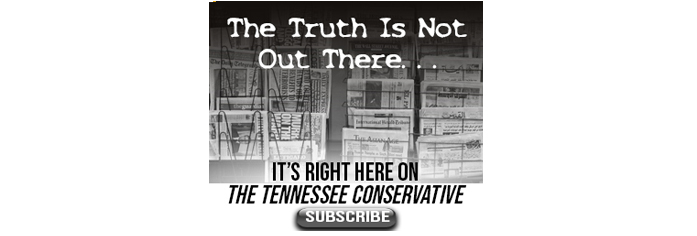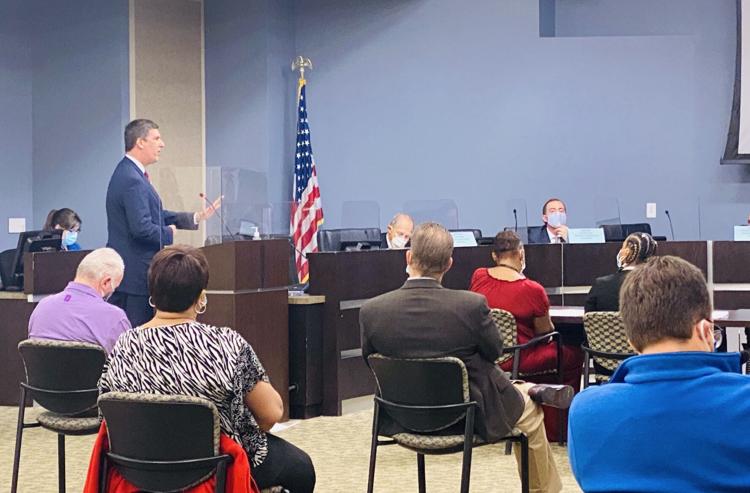The Center Square [By Vivian Jones]-
Instead of making a decision on whether to send a petition that would repeal Nashville’s 34% property tax increase to the people for a vote, the Davidson County Election Commission voted Friday to ask a judge to decide.
Citing legal issues with the ballot proposal, commissioners voted 4-2 on Friday to file for declaratory judgement action rather than make an immediate decision not to allow a referendum vote and be sued by the group representing more than 26,000 petitioners.
A citizen-led effort called 4 Good Government delivered more than 20,000 voter petition signatures to the Metro Clerk’s office last month. Proponents of the referendum say more than 26,000 Nashville voters have signed the petition.
“The idea that the people don’t get to vote on this is dishonest and disappointing. I expected better,” said Nashville attorney Jim Roberts, who drafted the petition and led petition efforts.
After a closed-door meeting with Metro Legal Director Bob Cooper last week, commissioners heard public comments Friday from advocates both for and against the proposal going to the public for referendum.
Roberts asked commissioners to do their “ministerial duty” and approve sending the proposal to the public for a vote “as written.”
“It is my sincere hope that there will not be even a consideration of denying the people of this county their right to vote on this petition,” Roberts said. “It’s not a done deal. It’s an opportunity for the people of this community to express their desires in the ballot boxes. They are entitled to do and the refusal to allow them to express their rights and voting is a civil rights violation.”

Metro Councilman Bob Mendes, who spearheaded the council’s property tax increase legislation, criticized the structure of the proposal and explained Metro’s opposition to sending the proposal to the people for a vote.
“Traditionally, term amendments look like legal documents, not Facebook rants like this one does,” Mendes said.
Mendes said that while the proposal adds to city ordinance, it does not delete conflicting ordinance already on the books. Because the proposal changes existing ordinance, it would create conflicts within the law that would be grounds for further legal action.
“If this passes, we’ll have one section laying out that the [Metro] Council has complete discretion to set the tax rate, and then we’ll have another section – unnumbered, stuck in wherever we’re going to stick it in, and the unnumbered section that says something totally different,” Mendes said. “There will be an active conflict between sections in the charter on real estate.”
The idea of approving the petition for a public referendum seemed not to be an option from the start. At the end of the debate, Commissioner Tricia Herzfeld outlined the two options before the body: vote against sending the referendum to the public for a vote and be sued by the petitioners or request a judge to make a decision – a route that likely would end in the commission naming the petitioners as defendants in a lawsuit.
At least two commissioners expressed distaste for suing a citizen group for bringing a ballot proposal petition.
Finally, Commissioner Jesse Neil made a motion to file for declaratory judgement “in order to avoid the cost of an election on an invalid amendment.” Commissioners approved in a 4-2 vote.
While the commission did discuss the estimated cost of a special referendum to be about $1 million, commissioners did not discuss the cost to taxpayers of legal representation to file for declaratory judgement. Without discussion of other possible candidates, the commission voted to hire former Tennessee Supreme Court Justice Bill Koch as legal representation for the proceedings.
“Clearly, there are serious questions about the constitutionality of the proposed charter amendment, and we look forward to the court’s ruling,” Nashville Mayor John Cooper said in a statement. “This proposed amendment would turn Nashville’s temporary financial challenges into a chronic and permanent condition and be a roadblock to our community’s success. As essential city services are reduced, including classroom sizes, emergency services and response times, and infrastructure maintenance, our property values and our business landscape will quickly diminish.”
Commissioners designated Dec. 15 as a contingency election date, as legal proceedings likely will delay the public referendum vote beyond the Dec. 5 election date outlined in the petition.
The commission will meet again Tuesday to choose which defendants to name, and deliberate further on legal representation.



